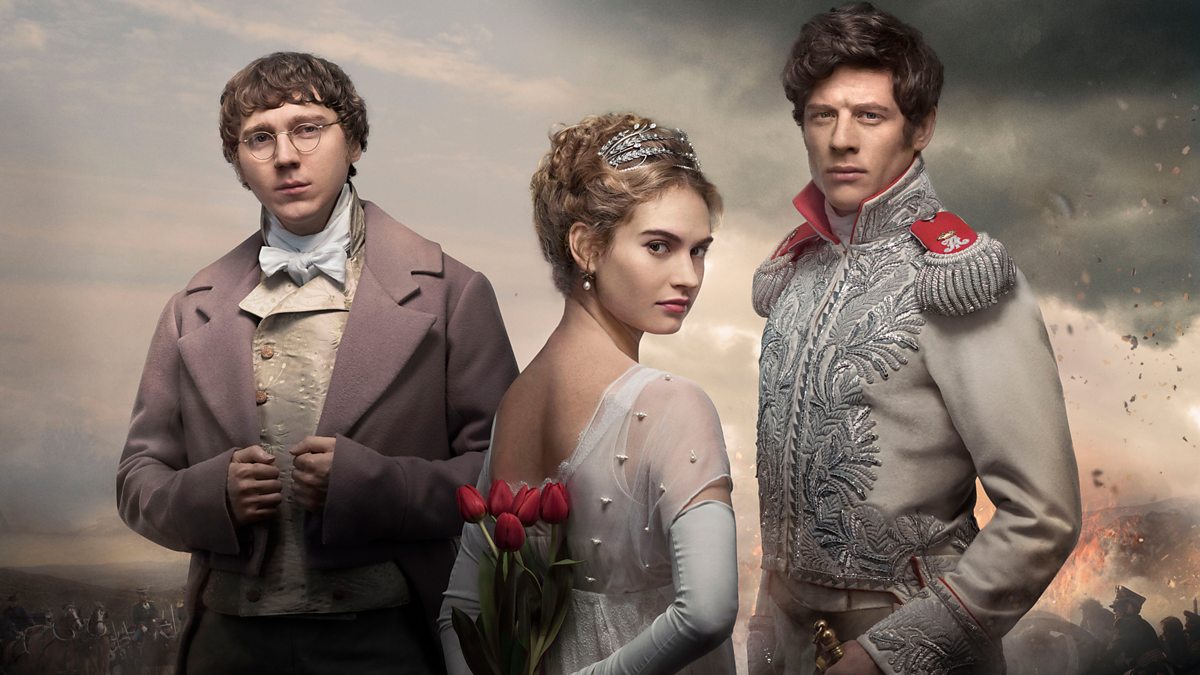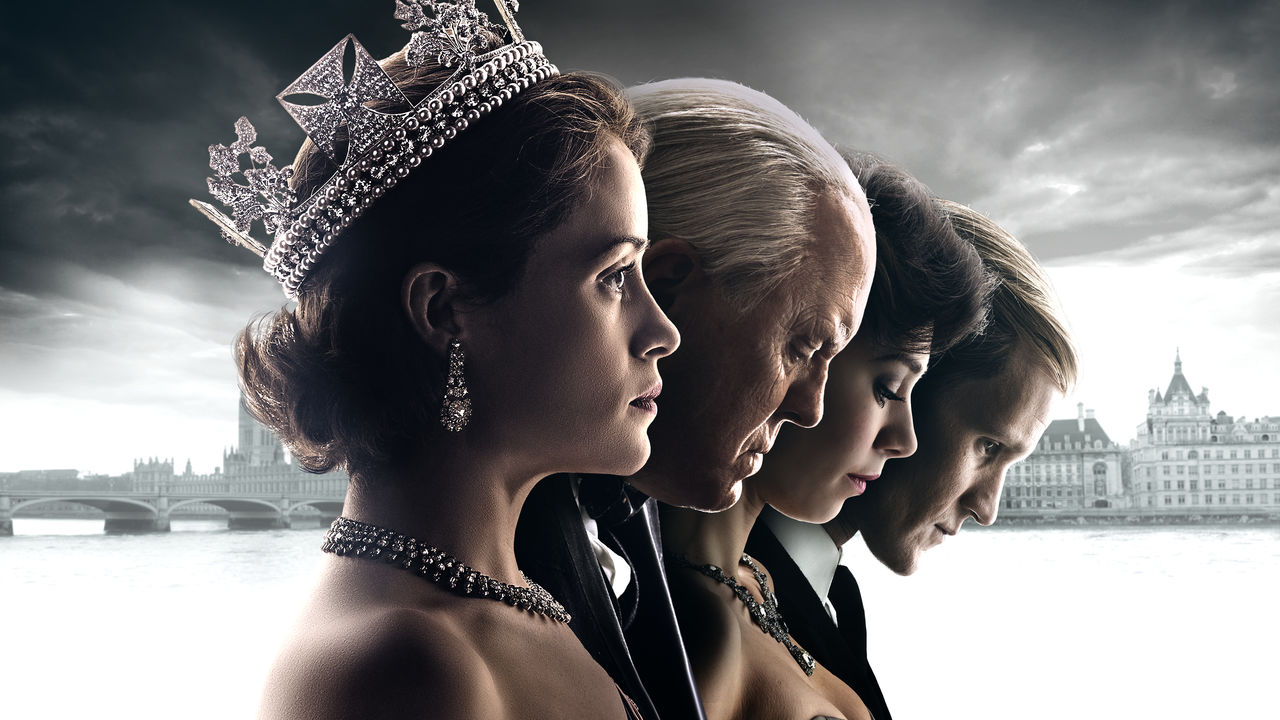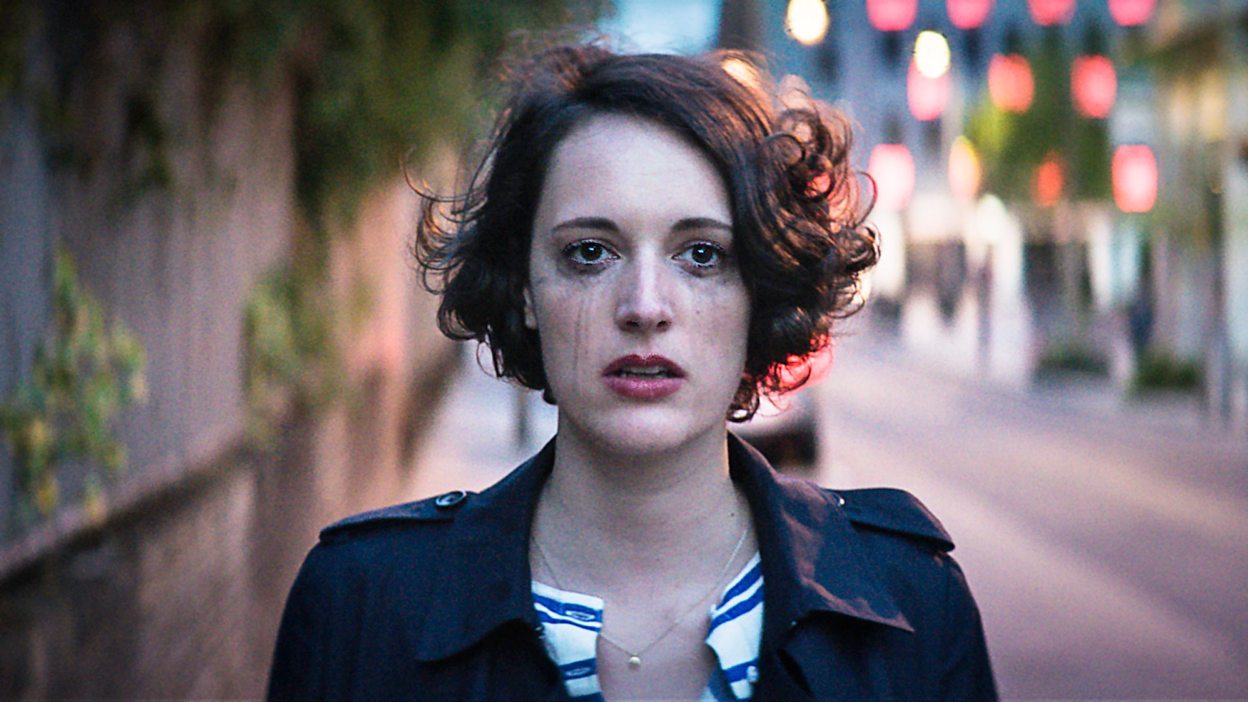
And with the bonging of Big Ben, 2016 is over - a year that has tested even the most optimistic of optimists. Though it would probably do us all good to leave it in the past and never speak of it again, I'm going to linger a little longer and ask you to do the same, as I look back on those moments of light that led us through the darkness - the best TV of the year.
War and Peace

Cast your mind back to January, when the only thing to trouble us was a spell of cold weather. For the benefit of the nation's health, the BBC provided a period drama so lavish and romantic that it would keep us ensconced in our living rooms for the first six weeks of 2016. Said to have cost £20 million, War & Peace was the Beeb's most ambitious costume drama in years; shot on location in snowy Russia, it showcased some of the country's grandest palaces alongside some truly spectacular scenes from the battlefield. At the heart of Andrew Davies' much condensed adaptation though, was the love story between Pierre, Natasha and Andrei. There was no more iconic piece of drama this year than the ballroom scene in which James Norton's brooding Prince danced with the utterly charming Natasha (Lily James) for the first time, but the unadulterated romance was soon overshadowed by a war which would tear families and lovers apart and threaten to destroy the lives of everyone in Russia. Paul Dano was a revelation as Pierre, the misguided heir to a great fortune, who tried to find a higher purpose, almost losing himself along the way. I hope to see him among this year's BAFTA contenders. The feature length final episode saw everyone's fates brought together, some for better, some for worse and the bloody battle of Borodino, so impressive in scale, had terrible consequences for some beloved characters. Thankfully, Andrew Davies remembered that this story is, in fact, called War & Peace not War & More War, and his final act, a slight change from Tolstoy's, was a serene and heartwarming epilogue. One to add to the list of costume drama classics.
Line of Duty
As is so often the case in my social life, I was late to the party when it came to Line of Duty. The first series more or less completely passed me by and I had no interest in series two until I started hearing whispers that Keeley Hawes might usurp Sarah Lancashire's indisputable claim to the best actress BAFTA (which in the end went to Georgina Campbell - not so indisputable after all). So as the BBC started rolling out the promos for series three, I duly brought myself up to date, and I urge you to do the same if you haven't already. For those not au fait with the concept, Line of Duty focuses on an anti-corruption unit (AC-12) who investigate cases of potential misconduct within the police force. This series started with another bloody misdemeanor and though at first there seemed to be a clear cut culprit, a more complex picture soon emerged and everyone's motives came under scrutiny. It's a deft twist on the classic mystery drama - by shifting suspicion onto the people we naturally regard as protectors, the stakes seem higher and the danger, even greater. Once again the show was at it's heart-pumping best in its now famous interview scenes - though they're just people talking in rooms, writer Jed Mercurio is able to ramp up the tension and anticipation so much that it feels like you've just been watching an action film. Like War & Peace, series three ended with a feature length episode and though most of its nail-biting first hour saw AC-12 quietly grilling a suspect, it ended in truly falmboyant fashion, with a car chase and a good old fashioned shoot-out. Martin Compston, Vicky McClure and Adrian Dunbar turned out some astonishing performances once again and it's testament to Line of Duty's overall brilliance that the next two series have been bumped up to BBC One.
Happy Valley
Sally Wainwright proved that there's no such thing as second series syndrome when she triumphantly brought Happy Valley back this year. Within seconds, it was clear that Wainwright's characters and dialogue were still as vivid as they had been first time around, as she opened with a fantastic, sheep-rustling two-header between Sarah Lancashire's Catherine and Siobbhan Finneran as her sister Claire. What wasn't clear was how the story would maintain a sense of urgency and danger with series one's murderous villain Tommy Lee Royce, now safely contained in prison. We needn't have feared though, Wainwright made sure he was just as much of a threat from behind bars and James Norton, though limited by his surroundings, turned in an even more chilling performance than he had in before. For much of the first series, the audience were one step ahead of the characters, we knew what was coming before they did and the strongest parts of this series maintained that feeling of unease. In the second episode we were shocked by a brutal murder and though we knew who was responsible, we were on the edge of our seats waiting for their identity to come to light. Sarah Lancashire was exceptional again as Catherine, most of her standout moments this time included her scenes with other women - the prostitutes she fought to protect, the police officers she chastised for not protecting them, her sister Claire who wasn't as in control of her demons as she had been before, the deluded Frances who she treated with respect despite the threat she posed to her family and finally, poor Alison, who resorted to a terrible act to protect her son. Apparently Sally Wainwright wants to wait until Catherine's grandson Ryan is a teenager before picking up the story, so we might have a wait for the next series but given the quality of this show so far, it'll be worth it.
The Missing
Clever, clever, clever.
With the first series wrapped up nicely (yes some people wanted to tear their hair out after that ending but I maintain it was near-perfection) the second series left James Nesbitt behind, to focus on an entirely different, but no less disturbing mystery - the disappearance and subsequent reappearance of Alice Webster. Whereas series one flashed between the present day and the time of little Oliver going missing, this series cut between many more timeframes, even going back as far as the early nineties, long before Alice was abducted, to give us a bit of background into what drove her kidnapper to take her. The fantastic Tcheky Karyo returned as Detective Baptiste who, although technically retired, was right at the heart of the investigation again. Dogged by health problems, the tenacious Baptiste travelled as far as Iraq and Switzerland in search of answers but his quest for the truth was hindered at every step by the secretive British army who were stationed in Alice's home town. Much like the violent exchange on the boat in series one, there was a shockingly brutal moment in the middle of this series too - and it led to the revelation that although Alice had returned to her family, her kidnapper was still a very real threat. Even after his identity had been revealed, there were still secrets left to uncover and questions still to be answered so the finale had a lot of expectation riding on it. Writers Jack and Harry Williams nailed it - though not exactly the 'happily ever after' we'd been waiting for, it was a satisfying, powerful conclusion.
The Crown

I was a bit concerned that this Netflix series was going to be style over substance but I needn't have worried. It was compelling from start to finish, with real heart beneath its glossy exterior. Don't get me wrong, its gloss is a wonder to behold, they've been ambitious and it's paid off - the attention to detail is exceptional, but it's the scenes of Pomp & Ceremony that really take your breath away - the coronation, the tours of the commonwealth - Netflix haven't shied away from crowd scenes or venues that would be impossible to film at, instead they've recreated them with computer wizardy, just have a look at some of the incredible shots they've engineered in the video below.
the crown vfx breakdown from oneofus on Vimeo.
But the writing is every bit as elegant as the production design. Peter Morgan's scripts are quiet but they pack a punch, there are so many stand out moments; Margaret and Elizabeth arguing over which one was their father's favourite, the poignant moment that the Duke of Windsor watched his niece's coronation whilst lamenting his own abdication, the first time Elizabeth returned to her family after the death of her father and her elderly grandmother stooping to bow. My favourite was in the episode 'Assassins' in which legendary bulldog Winston Churchill was faced with some home truths by the man painting his portrait. The performances are stellar throughout, but Claire Foy is a revelation as the reigning monarch. She absolutely nails the accent, even her walk is recognisably the queen's, but this is so much more than an impersonation. You can tell that she understands the seriousness of Elizabeth's role, and she projects a believably cool detachment but there's always so much going on behind her eyes, she's hypnotising in every scene.
Fleabag

Praise be to Fleabag for giving me something other than a police drama or period piece to put on my list. It's rare that I find a comedy that I'd rush back to for a second viewing, since Gavin and Stacey ended in 2010, W1A is the only one that's managed it, but this year, Fleabag was ingested no less than three times by myself and the housemates I harangued into watching it. Pheobe Waller-Bridge who wrote and starred, produced a comedy of rare sincerity and originality. Her character (interestingly, never named on screen) is an endearing screw-up, struggling to cope with adult life, but though she's all kinds of relatable, my favourite thing about her is that she's not always likeable. Her recklessness leads to an unexpected twist in the final episode that comes at you like a punch in the stomach. Bitingly funny, poignant and absolutely tragic, it will be a travesty if Fleabag isn't brought back for a second series.
Honourable mentions
Sherlock: The Abominable Bride ... The same perfect characters and another thrilling case, this time returned to the Victorian setting that they were originally lifted from. If this had been a standalone episode it would have made the list for sure, but its voyage into hallucination pushed the rest of the series into the realms of fantasy and I'm not quite ready for that.
The Hollow Crown: The Wars of the Roses ... It came as quite a shock but I loved all 364 minutes of this Shakespearean epic. Benedict Cumberbatch's take on Richard III was truly oustanding and having him deliver some of his lines direct to camera like Frank Underwood in House of Cards was a masterstroke.
To Walk Invisible ... Moving, inspiring and empowering, this biopic of the Bronte sisters penned by Sally Wainwright proved that Yorkshire is still producing incredible female writers.
The People Vs OJ Simpson ... Not British so I didn't include it but there's still something to be said for watching shows in weekly installments rather than gorging yourself - even in a show like this where everyone already knows the ending. A tight script, some stunning performances, and I was counting down the days until each new episode.
Black Mirror ... If I had a pound for every time I'd asked someone "Have you been watching Black Mirror?" this year, I estimate I'd have an extra £12 to my name. 'San Junipero' was beautiful, but 'Shut Up and Dance' freaked me out so much that I haven't quite mustered the strength to watch the final two episodes yet.

No comments:
Post a Comment